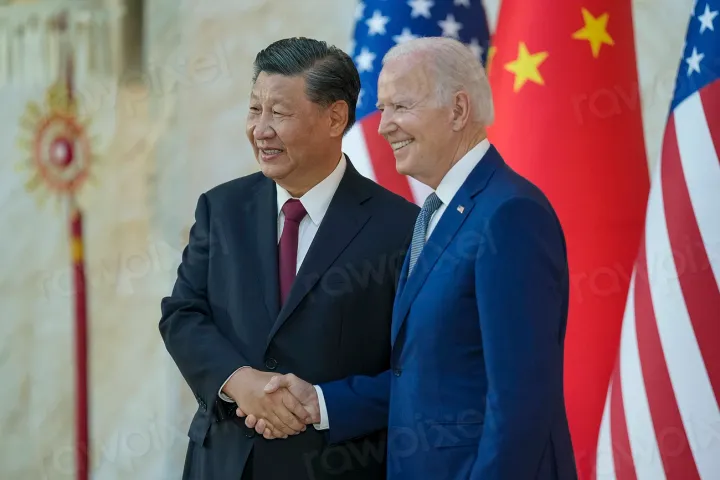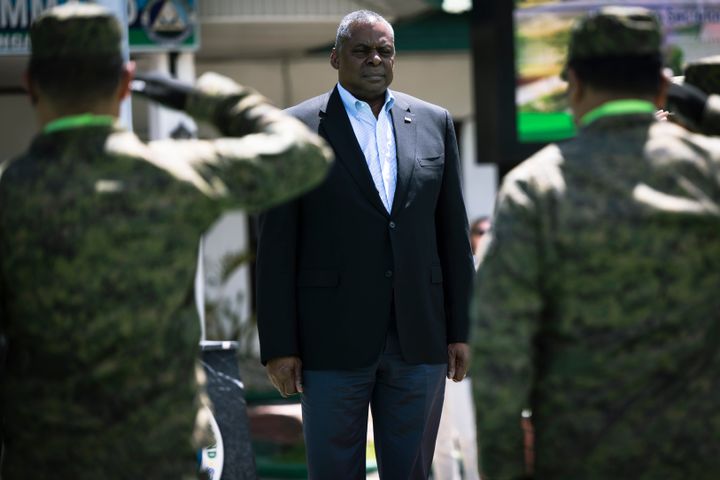Potential U.S. Ban Looms if TikTok's Chinese Stakeholders Fail to Sell Stake

The Lede: The Biden administration has called for ByteDance, the Chinese parent company of TikTok, to sell its shares in the U.S. version of the app, warning for the potential nationwide ban of the widely-used video platform.
What we know:
- TikTok spokesperson Brooke Oberwetter told Reuters that the warning comes from the U.S. Treasury-led Committee on Foreign Investment in the United States (CFIUS) - an interagency committee responsible for reviewing and assessing the national security implications of foreign investments in American companies or assets.
- The move comes in the midst of rising concerns that TikTok, owned by Chinese corporation ByteDance holds a national security threat and could potentially pass U.S. user data to the Chinese government.
- The concern is driven by ByteDance's connections to the Chinese government and military, as well as criticism about the company's handling of children’s personal information.
- TikTok Chief Executive Shou Zi Chew is set to testify in front of Congress on March 23 over security concerns.
The background:
TikTok has been negotiating with CFIUS on data security requirements for more than two years. The interagency had already unanimously recommended ByteDance to divest TikTok in 2020, followed by an order from Trump’s administration that would ban the video app nationwide.
As TikTok started to argue in Federal Appeals Court that the order denied the company due process, the Biden administration came to the office with an agenda to conduct its own security review.
Since then, more than 30 U.S. states have banned employees from using TikTok on government-owned devices. In February the White House gave government agencies 30 days to ensure they do not have the app on federal devices and systems. It was followed by the RESTRICT Act which, if passed in Congress, would grant President Biden the authority to prohibit TikTok and other foreign-based technologies across the country on the grounds of national security threats.
TikTok has criticized these decisions, citing the First Amendment, as the video app has more than 100 million U.S. users. The company also stated that it has invested over $1.5 billion in stringent data security measures while denying any accusations of espionage. Its Project Texas proposal involves working with U.S. software giant Oracle to house all U.S. user data within the country, while also granting Oracle the ability to review its algorithms and content moderation guidelines.
Likely outcomes/Takeaway:
- If the Biden administration moves forward with the warning, it’s likely to see a similar pushback as in 2020. TikTok might take the decision to the Federal Appeals Court again, arguing that the company’s legal rights have been violated, as it was not given the opportunity to adequately defend itself or contest the allegations or actions taken against it.
- A successful legal challenge by TikTok could undermine the credibility of CFIUS and raise questions about the fairness and objectivity of its decision-making processes. And if the decision against TikTok is overturned, it may set a precedent that makes it more difficult for CFIUS to take similar actions against other foreign companies in the future.
- Considering all the related bills that have been proposed lately, it seems less likely that TikTok’s data security efforts will be enough to satisfy the U.S. government's national security concerns.
- The nationwide ban would also affect more than 100 million Americans and further increase tensions between Washington and Beijing.
Quotables:
- "If protecting national security is the objective, divestment doesn't solve the problem: a change in ownership would not impose any new restrictions on data flows or access. The best way to address concerns about national security is with the transparent, U.S.-based protection of U.S. user data and systems, with robust third-party monitoring, vetting, and verification, which we are already implementing." - TikTok spokesperson Brooke Oberwetter.
- “The U.S. has yet to prove with evidence that TikTok threatens its national security. It should stop spreading disinformation about data security, stop suppressing relevant companies, and provide an open, fair, just, and non-discriminatory environment for foreign businesses to invest and operate in the U.S.” - Chinese Foreign Ministry Spokesperson Wang Wenbin.
- "This [TikTok] is a substantial national security threat for the country of a kind that we didn't face in the past… I would imagine that it is probably one of the most valuable surveillance tools on the planet," Sen. Marco Rubio.
- “We will never share data, period,” - TikTok Chief Operating Officer Vanessa Pappas.
Good Reads:
U.S. tells TikTok owners to sell app or face a ban (AXIOS)
TikTok says US threatens ban if Chinese owners don't sell stakes (Reuters)
U.S. Threatens Ban if TikTok’s Chinese Owners Don’t Sell Stakes (WSJ)



